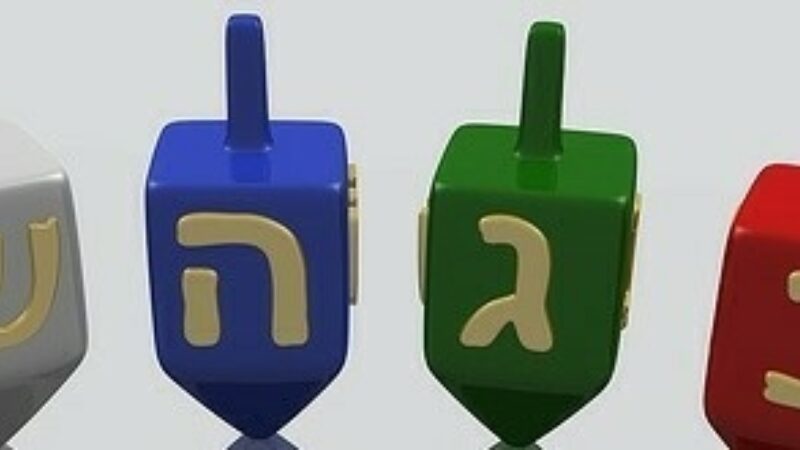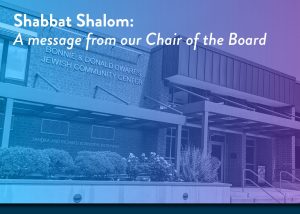
Playing with the dreidel is a traditional Hanukkah game played in Jewish homes all over the world.
The Hebrew word for dreidel is sevivon, which, as in Yiddish, means “to turn around.” Dreidels have four Hebrew letters on them, and they stand for the saying, Nes gadol haya sham, meaning “A great miracle occurred there.” In Israel, instead of the fourth letter shin, there is a peh, which means the saying is Nes gadol haya po, “A great miracle occurred here.”
Here’s how to play the basic dreidel game:
1. Any number of people can take part in this great game.
2. Each player begins the game with an equal number of game pieces (about 10-15) such as pennies, nuts, chocolate chips, raisins, matchsticks, etc.
3. At the beginning of each round, every participant puts one game piece into the center “pot.” In addition, every time the pot is empty or has only one game piece left, every player should put one in the pot
4. Every time it’s your turn, spin the dreidel once. Depending on the outcome, you give or get game pieces from the pot:
- Nun means “nisht” or “nothing” [in Yiddish]. The player does nothing.
- Gimmel means “gantz” or “everything” [in Yiddish]. The player gets everything in the pot.
- Hey means “halb” or “half” [in Yiddish]. The player gets half of the pot. (If there is an odd number of pieces in the pot, the player takes half of the total plus one).
- Shin (outside of Israel) means “shtel” or “put in” [in Yiddish]. Peh (in Israel) means “pay.” The player adds a game piece to the pot.
5. If you find that you have no game pieces left, you are either “out” or may ask a fellow player for a “loan.”
6. When one person has won everything, that round of the game is over!
7. We suggest that if you use money to play the game, ask players to donate part or all of their winnings to tzedakah (charity). You can ask parents to match these contributions. This way everyone wins and you can share the Hanukkah gifts with those in need!
According to Jewish tradition, after the Maccabees’ victory over the Greeks, there was only enough oil to burn for one day in the Temple. Miraculously the oil burned for eight days. Lighting the Hanukkah menorah commemorates this miracle.


